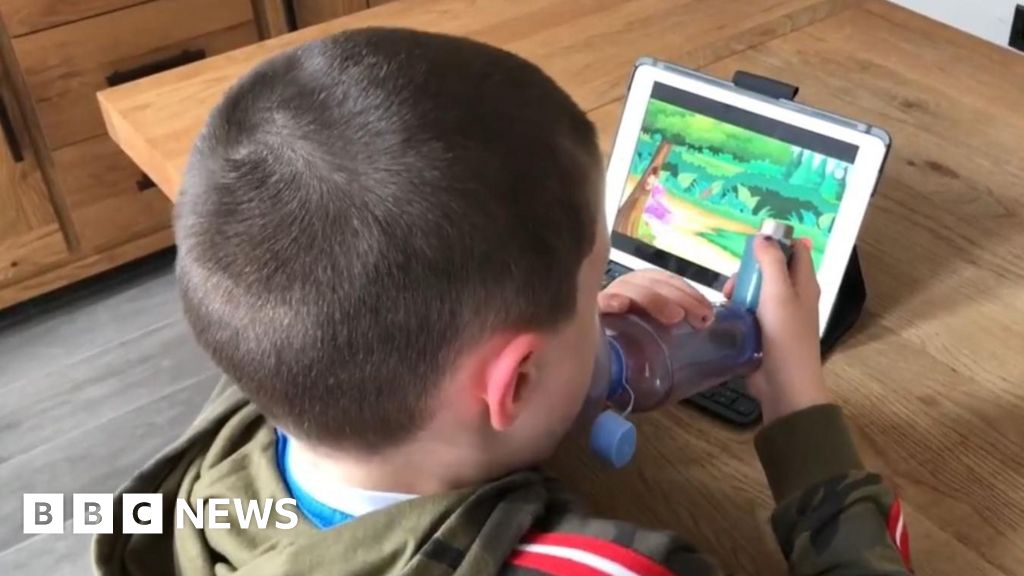
Like many parents of asthmatic children, Tariq Aslam found it incredibly difficult to watch his young son struggling to cope with his inhaler.
The consultant ophthalmologist said it was incredibly “stressful and frightening” for him and his wife to see four-year-old Rafi fighting for breath.
Every four hours, Rafi had to use a form of inhaler that was specifically designed for children.
Professor Aslam said that when his son was in a wheezy state, he often struggled to accept the mask and spacer device pressed against his mouth.
‘Rafihaler’
“I was determined to do something about it,” said Prof Aslam, “and so designed a system on a shoestring which could help train him.”
The result was a device, using gaming-style software, that could show young asthma patients how to use their inhalers more effectively.
Prof Aslam, who works at the University of Manchester, attached a microphone to an inhaler.
The product became known as the Rafihaler.
Software converts sounds picked up by the microphone into a visual display on a screen.
When Rafi used his inhaler correctly, he was rewarded by seeing a robot progressing through a series of obstacles, like in a video game.
A decade later, Prof Aslam hopes an enhanced version of his invention can help many others.
He said his “utterly transformational” device had enabled Rafi to take his medication properly and without distress.
Manchester University said the simple inhaler add-on, costing “just pennies”, could now be controlled by a smartphone app.
A spokesperson said the Clip-Tone System was also able to provide users with day-to day guidance and feedback about inhaler use.
The university said up to 90% of people using inhalers could use them more effectively.
‘Improved inhaler technique’
Clare Murray, professor of paediatric respiratory medicine at University of Manchester, oversaw a randomised control trial involving 117 adults over a period of up to six months.
The research was funded by the National Institute for Health and Care Research and the Asthma+Lung UK charity .
The smartphone app was created by Clin-e-cal, a digital health company spun out from the University of Manchester and supported by South Wales-based medical technology company Clement Clarke International
Prof Murray said: “We think the system may be a useful low-cost approach for the initial training of patients to use inhalers.”
The system may also “be helpful to maintain improved inhaler technique”, she added, thereby helping to better control asthma.
The Clip-Tone System’s developers are now looking to find a partner to bring it to market.

